Masked, but not silenced
A Kenyan response to the COVID-19 crisis
In Kenya, more than 80% of the working population are engaged in informal employment, and it is the livelihoods of these informal labourers that are devastated by COVID-19 related Public Health measures. Informal labourers face the impossible choice of staying home as advised by government, or going out in search of work, in order to feed their families.
In response to the pandemic, the Kenyan government has now gazetted regulations which include hefty fines and/or imprisonment for disregarding its directives. Short of a total lock-down across the nation, directives include the following:
“Users of public or private transport and public transport operators shall wear a proper mask that must cover the person’s mouth and nose and also maintain a physical distance of not less than one metre.” (Kenya Gazette Supplement No. 41, signed by Health Cabinet Secretary Mutahi Kagwe)
In response to this government directive, AE Kenya’s Mathare Women’s Project has resolved to make 5,000 reusable cloth facemasks for distribution in the community. The Project has identified skilled dressmakers, previously trained by the Mathare Women’s Project, who will manufacture the masks, and has sourced appropriate fabrics (with high filtration scores and good breathability) from a local supplier.
2,000 of these masks will be sold, providing a source of income to the dressmakers. The remaining 3,000 masks will be distributed to local community members who, due to the nature of their work, are unable to stay at home.
Recipients of the masks include police officers, security agents, small scale traders in informal settlements, commercial motorcycle riders (“bodaboda”) and public service vehicle drivers. The distribution is to be co-ordinated by the staff of AE’s Soweto Kayole Clinic, and will be in keeping with government regulations. Importantly, the mask distribution will involve education regarding COVID-19 and its prevention, and will place due emphasis on the principles of hand hygiene and social distancing. In the face of Kenya’s pandemic, AE will continue to reach out to communities with the love of Jesus, in both Word and Deed, knowing that no mask can silence the Gospel and its eternal hope for this nation.
AE South Africa Covid Response
As of the 15th of April 2020, South Africa had 2,415 confirmed coronavirus cases, the highest number in Africa. Although the novel coronavirus pandemic has not yet caused widespread devastation in South Africa, there is serious concern about the country’s ability to cope with its anticipated health and economic consequences. South Africa’s president, Cyril Ramaphosa, has been praised for his swift and decisive management of the pandemic, by announcing a 3-week total lock-down, which has subsequently been extended for a total of 5 weeks.
The economic implications of the pandemic, and measures to curb its spread, are dire for the 55% of South Africa’s population that live below its national poverty line, and in particular, for the 25% that already experience food poverty.
However, despite their economic impact, strict lock-down measures have been deemed essential. Large and crowded informal settlements are prone to the rampant spread of infection. South Africa has more people living with HIV than any other country in the world, which together with high rates of tuberculosis and other diseases, place people at risk for severe COVID-19 illness. In addition, South Africa’s over-burdened, and often failing, public health system is expected to be overwhelmed with the demands of this crisis.
African Enterprise South Africa is grateful for your prayers and ongoing support during this difficult time. In its initial response to this crisis, AE supplied and delivered 180 food hampers to vulnerable families in the Pietermaritzburg area. The hampers consisted of staple foods, as well as essential hygiene items, to sustain each family for a duration of 3 weeks.
In addition, homemade facemasks have been distributed in the community, in keeping with the current CDC guidelines, as well as recommendations from the South African government. AE has been able to distribute facemasks, together with Gospel tracts, thanks to the tireless efforts of AE South Africa’s Chair, Rob Langley, and his wife Bridget, who have made and donated these. The staff of AE’s Ngezandla Zethu sewing project, facilitated by Ntombi Dladla, have also sewed facemasks for distribution in the area. May we also seek to help our brothers and sisters stand firm in faith and fight this pandemic in South Africa.
For more information and up to date news from Africa, please visit our facebook post for South Africa here
IT training at Ghana SCAP project.
The current world-wide technological revolution, also known as the Fourth Industrial Revolution, will not escape Africa. According to a recent briefing by the World Economic Forum (1), Sub-Saharan Africa has yet to optimise its use of human capital in this regard. One of the WEF’s recommendations is that of “investing in digital fluency and IT literacy skills” (1).
At our SCAP vocational training project in Ghana, we are committed to giving students this opportunity. In partnership with the Sefax Computer Training Centre, we are able to offer a software/ networking course, as well as a software/ graphic design course.
One of our graphic design graduates, Prince Praise Gbeku, who now runs a successful photography business from home, describes how “my knowledge in IT has helped me in using the new technology in photography”.
Another graduate, Bright Dagadu, previously struggled to fend for himself as a casual labourer. With the aid of AE supporters, however, Bright has been able to complete his IT training and has now secured permanent employment with a company in Tema. He expressed that “I am very happy and very grateful to God for the opportunity offered me to learn IT. This has helped me tremendously to acquire a job because I was IT literate.”
Reference:
Poverty has created a terrible cycle of devastation in African communities, however the team at African Enterprise has spearheaded an amazing community intervention in Rwanda to prevent the terrible impact of poor nutrition and hopelessness.
Through the Women’s Self-Help Empowerment Groups, AE is training community leaders to bring kids back to health, give new hope and purpose to families and provide a sustainable future for the families through up-skilling women in particular.
In the country area of Rwamagana, Rwanda 30 families came together to learn how to grow crops, make cleaning products, soya milk, juice, and create basic foods from a variety of products especially sweet potatoes. Janette Musabyemariya, the community health volunteer has given up her house and garden for this purpose. “In the past three years that we have established this initiative, we have achieved so much” she said. “Our community was very down, with children’s growth stunted and a side-effect of high levels of alcohol abuse particularly amongst the men. However, as a result of what AE has done for our community, it has lifted us up and empowered women, helped given the men hope and the teaching of AE has spread throughout the community.”
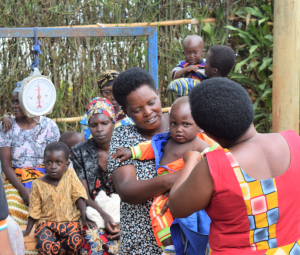
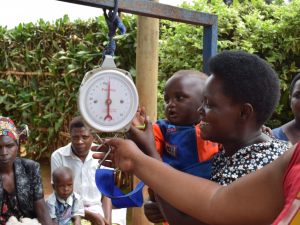
A local mother and child receiving medical attention
As a result of growing crops and now raising farm animals, the community’s access to nutritious food has meant the children are no longer suffering from malnutrition. To help ensure community health standards are being met, the children are weighed each week and fed a community provided meal.
“Our hope is that we will be able to sustain this model over the long term” Janette said. “AE is like a parent to us and we a growing child. We want to expand our model and teach many more people in Rwanda. We thank God for all that He makes possible through your prayers and financial support.”
This article was originally published in Christian Today.
In the vast urban sprawl within Sub-Saharan Africa, Celeste lives in a tiny space between two buildings with her three children. A single mum, she finds it hard to make ends meet whilst her children play in the narrow alleyway and mud street, streams and rubbish within the slum.
I met Celeste whilst on mission in Kampala, Uganda, and was invited by her neighbour Eugene, an unemployed university graduate, to see how they are living side by side in the slum.
Accompanied by the AE Ugandan team leader Paul, who translated for me, I was struck by the hopelessness of the situation in the slum, and at the same time the hope that Celeste had in God to see her and her children pull through. In her 3 metre by 3 metre accommodation nook, no bigger than a small walk-in wardrobe, she had posters on the wall testifying to her faith.
“I love God” she said, bringing a lump into our throats. “He will see me through”. In the meantime, her young neighbour Eugene also attended to some of the practicalities of ensuring this small family’s survival through food and meagre money that he managed to obtain.

Photo – Ben Campbell in Celeste’s house with Eugune and Paul, the team leader.
I met both these people during the AE mission in Kampala in September 2018, both of whom were volunteering to clean up the only grassy play area for children, which was rapidly becoming a dumping ground for rubbish.
Eugene said that the state of affairs in the slum was such that only AE was capable of being able to coordinate such a clean-up, independently of the politics within the slum, and set an example of Christ’s love to care for the children and widows in distress.
In the course of our visit, we became aware of an overflowing pit latrine that had served the community for a number of years, but now was unusable. Helping the community to determine how they will address the health and sanitation of their community became an important part of our mission focus.
Sanitation issues continue to be a leading cause of illness and death amongst the poor urban communities of Africa, particularly affecting the young people who are out playing in their only environment, as kids do. The only difference is the state of the environment they are playing in.
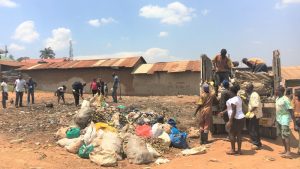
Photo – The big clean up.
Christian organisations – Doctors and Dentists
It is these types of situations that have galvanised many Christian organisations to assist, and in the case of African Enterprise, we aim to express the love of Christ through practical assistance as well as uniting churches for mission in the cities of Africa.
It was an aspect of mission Africa that I recently brought to the attention of the Fellowship of Christian Doctors and Dentists in Canberra on the past long weekend, and the importance of the involvement of the medical community to help address these needs.
Accompanied by a South African medical practitioner Dr Jacobs, now studying health management in Australia, we jointly presented on the various aspects of health outreach AE is involved with, in particular the medical clinics AE is running in Nairobi (Soweto Kayole) and Kampala (Milne clinic).
With the assistance of the medical fraternity and the wider evangelical community, our aim is to build an obstetric unit to reduce the infant mortality rate running much higher than UN standards.
As you reflect on God’s role for your life, and how you are witnessing to Christ’s love today, where is God calling you to make a difference today? Is it in the far flung regions of Africa, 20 hours flight from Australia, or is it next door to you? How is God calling you to love your neighbour today.
Link to the original article: https://christiantoday.com.au/news/fellowship-of-christian-doctors-and-dentists-listen-to-ae.html
Feature image: Celeste at home with her children in the Kampala slums
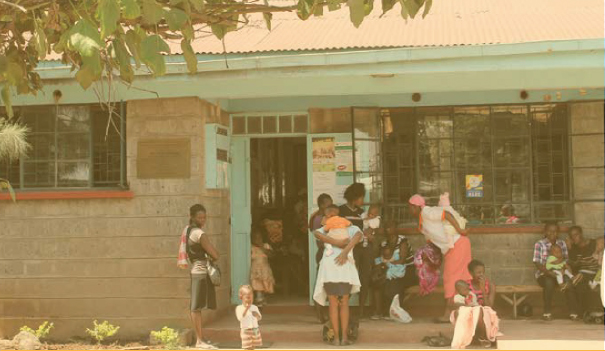
Kayole is one of many slums located on the outskirts of Nairobi, Kenya’s capital. With an estimated population of 700,000, most of its residents live in abject poverty in homes that lack electricity and running water. Additionally, more than 60% of the population are unemployed with most families living on less than one dollar a day.
The Clinic
In 1996, African Enterprise established the Soweto Kayole PHC Clinic which has become the most efficient, affordable and highly respected community based health care centre within the area. However, it still does not have the facilities to assist mothers giving birth or offer full medical attention to those in labour.
The growing need for maternal interventions in the neighbouring slums has forced the clinic to open its doors to local women for outpatient maternity services even before they have the resources to build and equip a proper maternity wing.
HIV Transference
However, even without a fully equipped maternity wing, the clinic has had great success in reducing the transference of HIV from mother to child after birth. We are confident that with a well equipped facilities, the clinic could achieve a nearly 100% non-transference rate if the mother is treated during pregnancy and the birth.
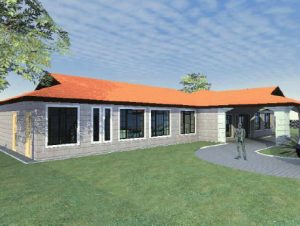 The Soweto-Kayole Maternity Wing
The Soweto-Kayole Maternity Wing
The proposed facility is a 20-bed maternity until attached to the existing clinic. This clinic will be a lifeline to the thousands of expectant women who are in desperate need of safe and reliable help during their pregnancy and birth.
YOU CAN make this dream a reality and help thousands of vulnerable women and children in one of the most desperate places in Kenya!
With your help, we can provide quality care for the thousands of pregnant women in the Kayole Slum.


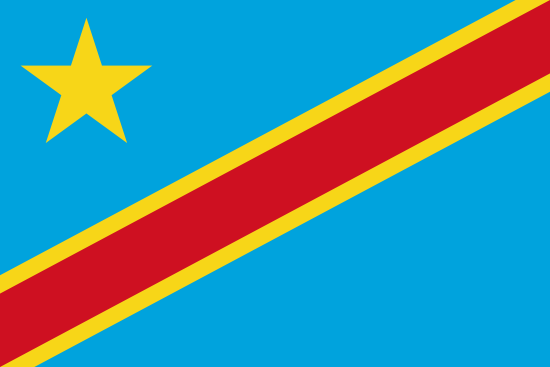
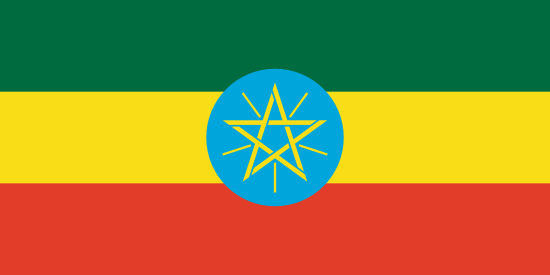
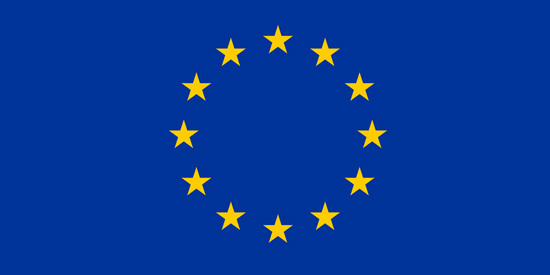
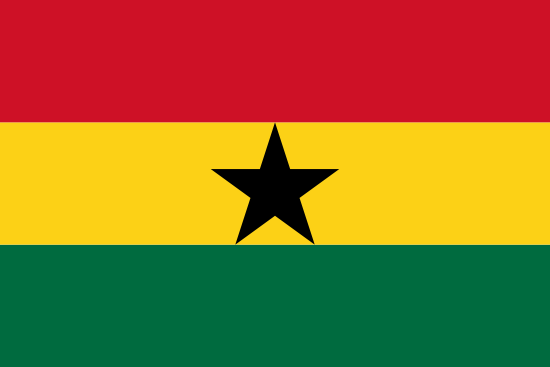


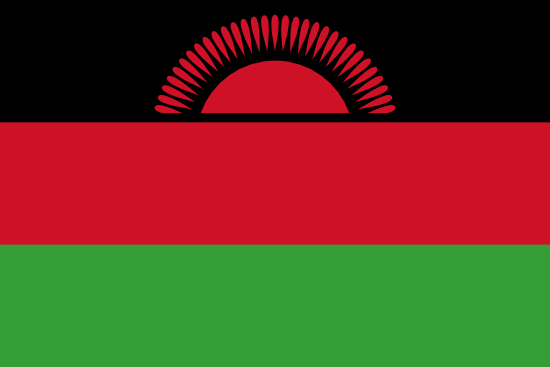
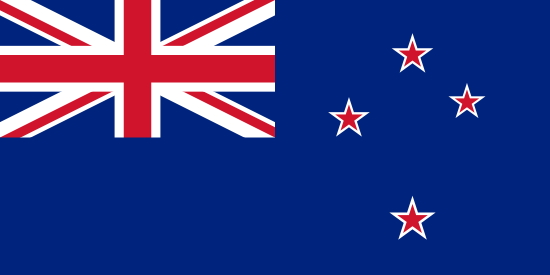
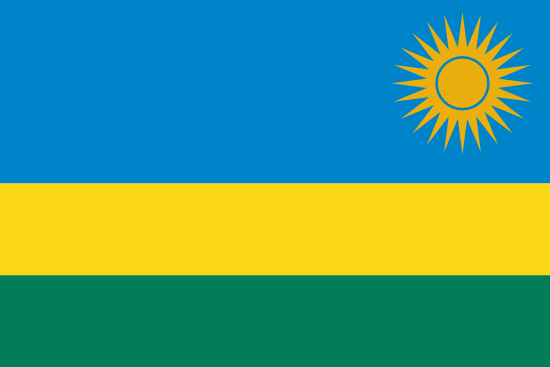
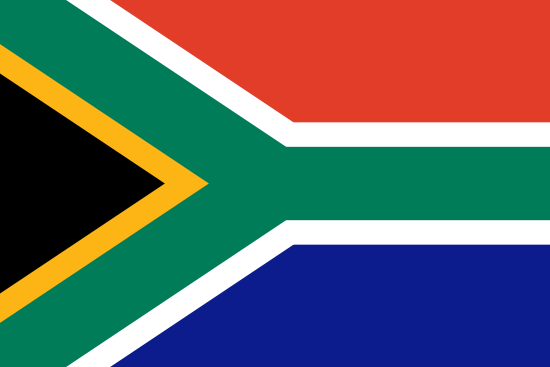



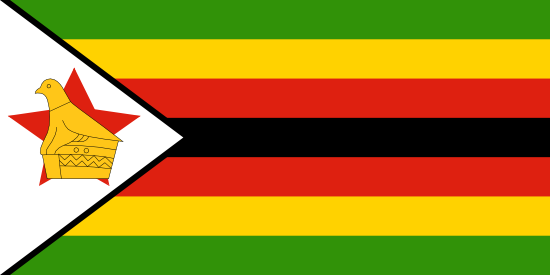






 The Soweto-Kayole Maternity Wing
The Soweto-Kayole Maternity Wing